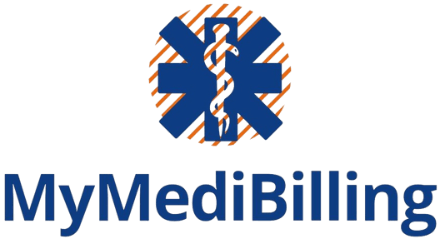Introduction
Accurate medical coding is crucial in the healthcare industry as it ensures that healthcare providers are properly reimbursed for the services they provide. Medical coding involves translating medical diagnoses, procedures, and services into universal alphanumeric codes which are used for billing and insurance purposes. When medical coding is inaccurate, it can lead to claim denials, delayed payments, and even legal issues.
In addition, accurate medical coding is essential for maintaining patient records and ensuring that patients receive the appropriate care. Without accurate coding, patients may receive incorrect treatments or medications, leading to potential harm or even death. In order to ensure accurate medical coding, healthcare providers must have a thorough understanding of medical terminology, anatomy, and physiology.
They must also stay up-to-date with the latest coding guidelines and regulations. Furthermore, attention to detail and strong analytical skills are essential for accurate medical coding. By understanding the importance of accurate medical coding, healthcare providers can take the necessary steps to improve their coding accuracy and ultimately provide better care for their patients.
Accurate medical coding is essential for healthcare providers to receive proper reimbursement for the services they provide. It also plays a critical role in maintaining patient records and ensuring that patients receive the appropriate care. Without accurate coding, healthcare providers may face claim denials, delayed payments, and legal issues.
In addition, inaccurate coding can lead to incorrect treatments or medications for patients, potentially causing harm or even death. To ensure accurate medical coding, healthcare providers must have a strong understanding of medical terminology, anatomy, and physiology. They must also stay updated with the latest coding guidelines and regulations.
Key Takeaways
- Accurate medical coding is crucial for ensuring proper healthcare reimbursement and avoiding common errors.
- Quality control measures and technology can be utilized to improve medical coding accuracy.
- Training and education are essential for medical coding professionals to stay updated and accurate.
- Understanding the impact of accurate medical coding on healthcare reimbursement is important for healthcare providers.
- Continuous improvement in medical coding accuracy is necessary to ensure the highest level of quality in healthcare services.
Implementing Quality Control Measures in Medical Coding
To boost medical coding accuracy, healthcare providers can implement quality control measures to ensure that coding is done correctly. One way to do this is by conducting regular audits of medical records and coding practices. By reviewing a sample of coded records, healthcare providers can identify any patterns of errors and take corrective action.
Additionally, implementing a peer review process can help to catch any coding mistakes before claims are submitted. This involves having another experienced coder review the codes before they are finalized. Another quality control measure is to provide ongoing training and education for medical coding professionals to keep them updated on the latest coding guidelines and best practices.
Another way to boost medical coding accuracy is by implementing quality control measures to ensure that coding is done correctly. Regular audits of medical records and coding practices can help identify any patterns of errors and take corrective action. Additionally, a peer review process can help catch any coding mistakes before claims are submitted.
This involves having another experienced coder review the codes before they are finalized. Ongoing training and education for medical coding professionals is also crucial to keep them updated on the latest coding guidelines and best practices.
Utilizing Technology to Improve Medical Coding Accuracy
Advancements in technology have made it easier for healthcare providers to improve medical coding accuracy. Electronic health record (EHR) systems can help streamline the coding process by providing built-in code suggestions based on the documentation entered by healthcare providers. This can help reduce errors and ensure that the correct codes are used.
Additionally, there are software programs available that can automatically check for coding errors and inconsistencies, further improving accuracy. By utilizing technology, healthcare providers can improve their coding accuracy and streamline their billing processes. Advancements in technology have made it easier for healthcare providers to improve medical coding accuracy.
Electronic health record (EHR) systems can help streamline the coding process by providing built-in code suggestions based on the documentation entered by healthcare providers. This can help reduce errors and ensure that the correct codes are used. Additionally, there are software programs available that can automatically check for coding errors and inconsistencies, further improving accuracy.
Training and Education for Medical Coding Professionals
| Ways to Boost Accuracy | Benefits |
|---|---|
| Double-Check Code Selection | Reduces billing errors |
| Stay Updated with Coding Guidelines | Ensures compliance with regulations |
| Utilize Code Checking Software | Identifies potential errors |
| Regular Training and Education | Improves coding proficiency |
| Implement Quality Control Processes | Minimizes coding discrepancies |
Training and education are essential for medical coding professionals to ensure that they have the knowledge and skills necessary to accurately code medical records. Many healthcare providers offer on-the-job training for new coders, as well as opportunities for continuing education to keep current coders up-to-date on the latest coding guidelines and regulations. Additionally, obtaining certification through organizations such as the American Academy of Professional Coders (AAPC) or the American Health Information Management Association (AHIMA) can demonstrate a coder’s proficiency and commitment to accuracy in medical coding.
Training and education are essential for medical coding professionals to ensure that they have the knowledge and skills necessary to accurately code medical records. Many healthcare providers offer on-the-job training for new coders, as well as opportunities for continuing education to keep current coders up-to-date on the latest coding guidelines and regulations. Additionally, obtaining certification through organizations such as the American Academy of Professional Coders (AAPC) or the American Health Information Management Association (AHIMA) can demonstrate a coder’s proficiency and commitment to accuracy in medical coding.
Tips for Avoiding Common Medical Coding Errors

There are several common medical coding errors that healthcare providers should be aware of to avoid them. One common error is unbundling, which involves billing separately for services that should be billed together as a single code. Another common error is upcoding, which involves using a higher-level code than is justified by the documentation.
Additionally, using unspecified codes when more specific codes are available can lead to inaccuracies in medical coding. By being aware of these common errors and taking steps to avoid them, healthcare providers can improve their coding accuracy and reduce the risk of claim denials. There are several common medical coding errors that healthcare providers should be aware of to avoid them.
Unbundling, which involves billing separately for services that should be billed together as a single code, is a common error that should be avoided. Upcoding, which involves using a higher-level code than is justified by the documentation, is another common error to watch out for. Additionally, using unspecified codes when more specific codes are available can lead to inaccuracies in medical coding.
By being aware of these common errors and taking steps to avoid them, healthcare providers can improve their coding accuracy and reduce the risk of claim denials.
The Impact of Accurate Medical Coding on Healthcare Reimbursement
Accurate medical coding has a significant impact on healthcare reimbursement for providers. When coding is accurate, healthcare providers are able to receive proper reimbursement for the services they provide. However, inaccurate coding can lead to claim denials or underpayment, resulting in financial losses for providers.
In addition, accurate coding is essential for ensuring compliance with billing regulations and avoiding legal issues related to fraudulent billing practices. By prioritizing accurate medical coding, healthcare providers can ensure that they are properly reimbursed for their services and avoid potential financial and legal consequences. Accurate medical coding has a significant impact on healthcare reimbursement for providers.
When coding is accurate, healthcare providers are able to receive proper reimbursement for the services they provide. However, inaccurate coding can lead to claim denials or underpayment, resulting in financial losses for providers. In addition, accurate coding is essential for ensuring compliance with billing regulations and avoiding legal issues related to fraudulent billing practices.
By prioritizing accurate medical coding, healthcare providers can ensure that they are properly reimbursed for their services and avoid potential financial and legal consequences.
Continuous Improvement in Medical Coding Accuracy
Continuous improvement in medical coding accuracy is essential for healthcare providers to stay current with evolving guidelines and regulations. This involves regularly reviewing and updating coding practices based on feedback from audits and peer reviews. Additionally, staying informed about changes in coding guidelines through ongoing education and training is crucial for maintaining accuracy in medical coding.
By continuously striving to improve their coding accuracy, healthcare providers can ensure that they are providing high-quality care while also maximizing their reimbursement for services. Continuous improvement in medical coding accuracy is essential for healthcare providers to stay current with evolving guidelines and regulations. This involves regularly reviewing and updating coding practices based on feedback from audits and peer reviews.
Additionally, staying informed about changes in coding guidelines through ongoing education and training is crucial for maintaining accuracy in medical coding. By continuously striving to improve their coding accuracy, healthcare providers can ensure that they are providing high-quality care while also maximizing their reimbursement for services.
Conclusion
Accurate medical coding is essential for ensuring proper reimbursement for healthcare providers and maintaining patient records.
By understanding the importance of accurate medical coding and implementing quality control measures, utilizing technology, providing training and education for medical coding professionals, avoiding common errors, understanding the impact on reimbursement, and continuously improving accuracy, healthcare providers can ensure that they are accurately documenting patient care while maximizing their reimbursement for services provided. By prioritizing accurate medical coding practices, healthcare providers can ultimately provide better care for their patients while also maintaining financial stability within their organizations.

